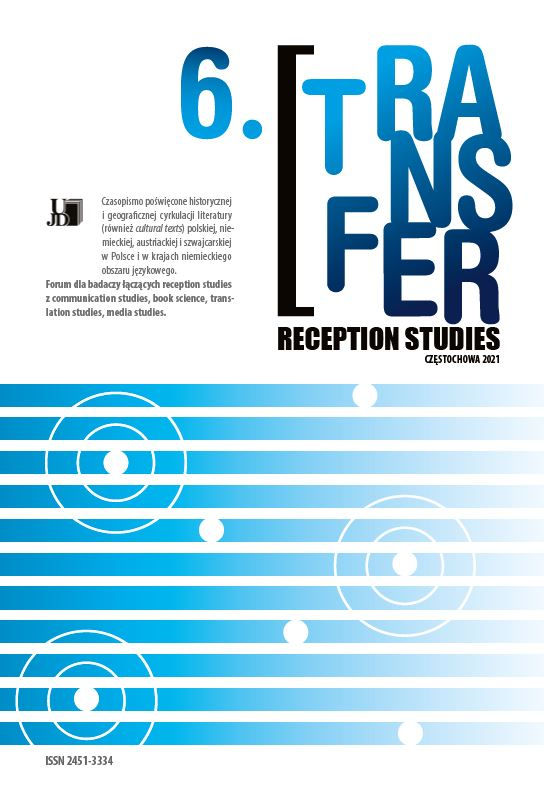Verbalisierung, Visualisierung und Verortung
der Erinnerung im deutschsprachigen
Generationenroman
Verbalization, visualization and localization of memory in the German-language generation novel
Author(s): Marijana JelečSubject(s): Language and Literature Studies
Published by: Uniwersytet Jana Długosza w Częstochowie
Keywords: Generational novel; contemporary literature; memory, the past; information transfer; memory problems; memory media
Summary/Abstract: The article first takes a look at one of the distinctive tendencies of contemporary German-language literature, the format of the generational novel, and asks about its special characteristics caused by the problem of memory. Following on from this, possible approaches to forgotten or repressed aspects of the past as a basis for a reconstruction of the family history are examined. Difficulties and possibilities individuals have in dealing with the past are explored. The literary corpus is made up of six generational novels of contemporary German literature: Eine sehr kleine Frau (2007) by Peter Henisch, Engel des Vergessens (2011) by Maja Haderlap, Das Foto (2016) by Elva Schevemann, Haus der Kindheit (2000) by Anna Mitgutsch, Pawels Briefe. Eine Familiengeschichte (1999) by Monika Maron and Kleine Zeiten. Die Geschichte meiner Großmutter (2012) by Fritz Dittlbacher. The novels develop perspectives on the past that are typical of generational novels, whereby the effect of the past on the present and the possibilities of access to the past are central in these literary texts.
Journal: Transfer. Reception studies
- Issue Year: 6/2021
- Issue No: 1
- Page Range: 117-133
- Page Count: 17
- Language: German

